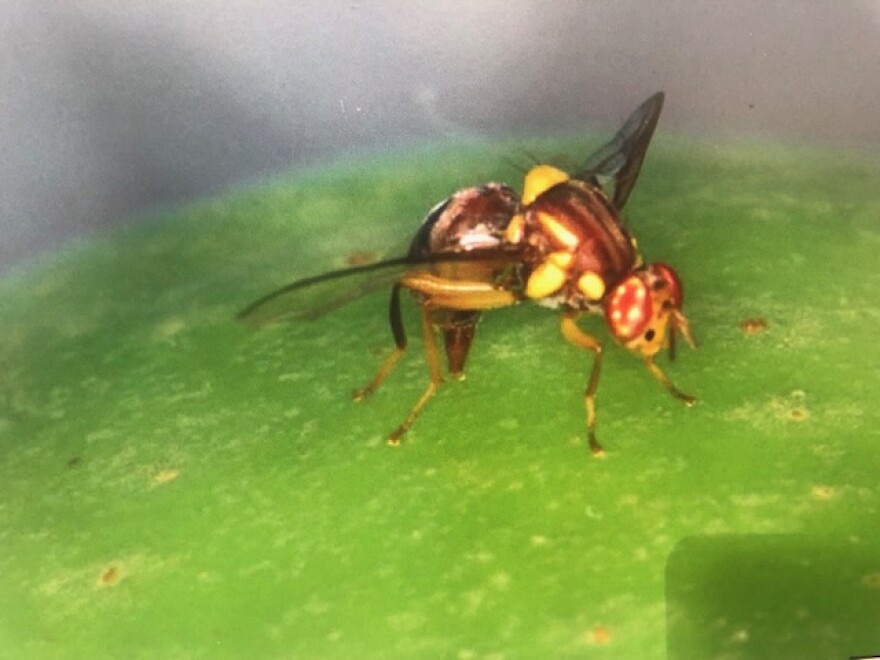Craig Underwood has been a farmer in Ventura County for decades. He’s dealt with all kinds of insect pests which have threatened his crops, which range from pumpkins to peppers.
But last September, he was stunned by the arrival of the Queensland Fruit Fly, a destructive insect from Australia so rare in North America it prompted the first ever quarantine for it in the United States.
"I never heard of it before," said Underwood.
It’s a tiny little fly, but it can destroy all kinds of fruits and vegetables.
"The Queensland Fruit Fly is one of the most damaging agricultural pests in Australia," said Ventura County Agricultural Commissioner Korrine Bell. "We don't know what it's potential would be here, but we didn't want to risk the possibility of it becoming established here. It will lay maggots inside of fruit, and as the maggots emerge, it makes the fruit inedible."
She said the fruit flies breed quickly, so you can easily have a crop ruined.
One of the flies was discovered last September. That wasn't enough to trigger a quarantine. But, when a second one was found, it was decided they had to act. A third fly was then discovered, which led to the quarantine being expanded to 90 square miles of Ventura and Los Angeles counties. The flies were found in residential areas.
The quarantine impacted parts of Thousand Oaks, Moorpark, and Simi Valley. About 100 farms were impacted. But, the goal was to prevent it from becoming an even larger quarantine.
Craig Underwood, with Underwood Farms, says five of his crops were impacted.
"The initial fear was that we would not be able to harvest pumpkins, right in the middle of our season," said Underwood. "We worked through it, and were released to do that (harvest the pumpkins). Starting in November, we were treating every week or ten days our strawberries, so we would be able to start harvesting in springtime."
Underwood says dealing with the pest was expensive and time consuming, because baits had to be placed, and crop shipments out of the areas had to be carefully documented.
The bait attracts male flies, which then die from a bit of insecticide on the bait trap.
The county agricultural commissioner says it was hard on growers, but essential to save their crops, and to keep the small infestation from spreading county-wide.
Residential areas where the flies were found were targeted with fruit stripped from the trees, increased trapping, and limited pesticide spraying.
But now, after going through what would be three life cycles of the flies, state and county agricultural officials are confident the infestation has been eradicated. The quarantine has been lifted.
"We're grateful it didn't expand into even more farming areas," said Bell.
There’s still the question of how did the destructive flies from halfway around the world ended up in Ventura County.
The Agricultural Commissioners said they were probably hitchhikers in contaminated fruit or vegetables brought by travelers to the county.
"These flies don't move on their own," said Bell. "It's usually human activity. It's someone who traveled to Australia, or some place you have the fly. You by the fruit, you bring it on the plane and you forget about it."
Ventura County farmers like Craig Underwood say it’s great news.
"Hugely relieved!" exclaimed Underwood.
But, county and state agricultural officials say they will continue stepped up insect trapping in the area, just to make sure the potentially destructive flies don’t somehow resurface.



